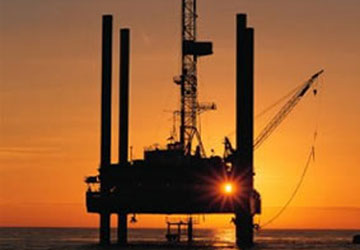 At a time when dealing in the securities market is becoming more technologically driven, Interlink Petroleum Ltd, a company engaged in exploration and production of oil & gas, still holds 70% of its shares in physical form. Out of the total 18.4 million outstanding shares as on December 2009, the company has still not dematerialised around 12.9 million or about 70% of its shares. As of end-December, Interlink has only 5.48 million shares in dematerialised form. Meanwhile, an assortment of interested parties and market punters are talking about the company getting closer to discovering oil. Large physical shares and market rumours are a recipe for price-rigging. Interlink promoters held 61.39% stake in the company as on December 2009.
At a time when dealing in the securities market is becoming more technologically driven, Interlink Petroleum Ltd, a company engaged in exploration and production of oil & gas, still holds 70% of its shares in physical form. Out of the total 18.4 million outstanding shares as on December 2009, the company has still not dematerialised around 12.9 million or about 70% of its shares. As of end-December, Interlink has only 5.48 million shares in dematerialised form. Meanwhile, an assortment of interested parties and market punters are talking about the company getting closer to discovering oil. Large physical shares and market rumours are a recipe for price-rigging. Interlink promoters held 61.39% stake in the company as on December 2009.
In order to eliminate the risks associated with trading in physical securities like delay in transfer, bad delivery, theft, fake and forged shares, market regulator Securities and Exchange Board of India (SEBI) in 1998 had introduced electronic book transfer of share certificates. It also introduced selling of shares in smaller quantities of 500 units or for an amount of Rs25,000 to help investors to liquidate their holdings easily.
According to some experts, since Interlink was listed on the Bombay Stock Exchange in 1994, the SEBI orders on demat may not be applicable to the company, or the company may not fall under the regulator’s policy reforms initiated in 1998.
This raises another question, has the time come to bring the companies listed before 1998 under the new reforms? Reportedly, for Interlink, the minimum lot size of 100 shares is available only in demat form forcing small investors who wish to buy less shares to take the delivery in physical form.
Interlink officials were not immediately available for comments.
“Earlier the population of depository participant (DP) account-holders was less. Post the 2005 rally, many people started opening DP accounts. It (Interlink) is not a fancy stock. There are many companies which hold a majority of their shares in physical form. It takes two-three months to dematerialise stocks, which makes it a tedious process. It is surprising to know that majority of Interlink’s shares are held in physical form,” said Chandrashekhar Layane, vice president, Fair Wealth Financial Services.
“Sometimes, shareholders don’t wish to convert their shares into demat form because of the high charges associated with this process,” said an analyst with a leading brokerage firm.
Dematerialisation of shares ensures faster payment on sale of shares, no stamp duty is paid on transfer of shares and there is no fear of loss, theft, mutilation or forgery of share certificates.
“All new public issues which have an issue size of Rs10 crore and more have to be issued in demat form. SEBI doesn’t say that all shares should be held in demat form. An individual can choose to have shares in physical form,” said a top official from an exchange.
Interlink stock trades in a ‘T Group’ category on the Bombay Stock Exchange (BSE) and closed at Rs35.15 in the last trading session. The company has been incurring net losses since December 2007. It posted a net loss of Rs0.15 crore in the December quarter of 2007, Rs0.63 crore in December 2008 and a net loss of Rs10,000 for the December quarter ended 2009.
In its announcement to the BSE on 16th February, Interlink said that it is allotting a preferential issue of 6.5 million shares at Rs23 each to non-promoter foreign companies which would increase its share capital to Rs30 crore from Rs19 crore.
Despite a majority of its shares being in physical form, Hemant K Gupta, a private investor, had recommended buying the stock in an article in a market tip-sheet called Informed Investor.
According to Mr Gupta, IPL’s market capitalisation is just Rs66 crore as against the Rs4,200 crore market capitalisation of Hindustan Oil Exploration (HOEL). Mr Gupta argues, “IPL has rights to develop two oil fields in